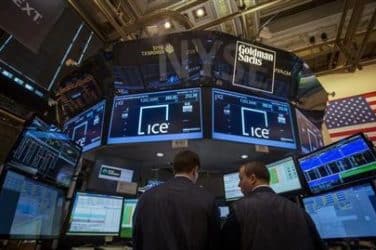
Volatility isn’t just in the equity markets, but in the commodity markets, where it belongs, according to trading expert.
Volatility remains to be a key theme for the markets this year. Some are coining the violent market turmoil as the “new normal” going into 2012. Equity players, especially last August and throughout the third quarter, experienced gut-wrenching swings in the market. Such fluctuations came without any rhyme or reason other than a simple lack of conviction and loss of consumer confidence.
Yet, for the commodity markets, such volatility is embedded in the system. Unlike equities, commodities are intended to be traded, not invested, according to Arthur Cashin, director of floor operations at UBS Financial Services. Cashin is an ex-floor trader.
“Commodities are not an investment,” he said the Index Universe’s Inside Commodities Conference. “They go up, and down—corn prices, go up and down; rice prices go up and down—they’re meant to be traded. There’s times when you’re long, and time when you’re short. Simply owning them is a real fallacy that’s been engendered in the markets.”
For large percentage of commodity players, especially those notorious of speculating on the market, commodities are actively traded—along with their linked instruments, such as commodity-producing companies and futures contracts.
Thus, playing the futures market has become a “zero sum game,” said an unnamed source at the conference, who advocates that “investors” of commodities need to stay “close to the physically-tied market.”
Unlike futures, companies that produce commodities are sound investment choices for more long-term players. “The companies that produce commodities is working asset because they’re a productive entity,” Cashin said. “But people need to understand the difference between wheat prices and sales from Kellogg this quarter.”
A rise in global demand for commodities has also fueled volatility in the markets, along with one other fear—inflation, especially regarding food prices.
“The potential concern is more so deflation, not inflation,” Cashin said. “Although we’re printing money, the money has no velocity.”





